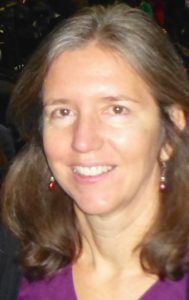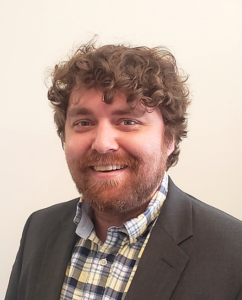This course has several elements:
- An introduction to the discipline of materials science and engineering
- A historical perspective of the impact of materials over the course of human civilization
- An introduction to the fabrication of materials (metals, ceramics, polymers, semiconductors)
- An introduction to the characterization of materials
- A critical assessment regarding how materials will impact the future of mankind
- The role of materials science in other engineering fields
Materials Science and Engineering (MSE) is focused on the improvement of existing materials and the discovery of new materials. MSE can often be thought of as a conduit between the natural sciences (biology, chemistry, physics, earth and planetary sciences) along with math and all engineering disciplines. An example of this is the area of biomaterials (hip implants, dental implants, drug delivery, transplant material) that bridges biology and biomedical engineering.
During the four weeks, students will focus on MSE in the afternoons and as small groups will conduct different hands-on laboratories, each lasting three days. Each week the labs will focus on a different material; metals, ceramics, polymers, and composites. One of the important cornerstones of MSE is the relationship between structure, at various scales including macro, micro, nano, and atomic, and the resulting properties. These labs are designed to emphasize this relationship. There will also be lectures on various characterization techniques including electron microscopes.
In addition to the hands-on activities, the students will hear seminars from several MSE faculty and scientists from Oak Ridge National Laboratory highlighting their personal research areas. These seminars have been chosen to illustrate the breadth of MSE and include topics such as computation materials science, advances in nanoscale materials, how MSE impacts the semiconductor industry, and carbon composites.
Additionally, there may be local plant/laboratory tours scheduled that complement the laboratory experiences. The tours will depend on the current social distancing restrictions and recommendations. The facilities visited may include several facilities at the Oak Ridge National Laboratory, such as the Spallation Neutron Source, the additive manufacturing capabilities at the Manufacturing Demonstration Facility (MDF), and/or the Carbon Fiber Technology Center.
Student Learning Outcomes
After completing this course, students will
- Be familiar with materials science and engineering concepts and terminology
- Be able to explain how materials have impacted the history of civilization (able to cite examples)
- Be able to explain how materials are synthesized and processed (including several classes of materials)
- Be able to explain how the structure and properties of materials are characterized
- Be able to propose materials solutions to current and future challenges facing mankind and our relationship to our environment
Course Requirements/Examinations
The student will demonstrate their proficiency in the learning outcomes by writing lab reports, giving oral presentations, and taking in-class exams.
Grade weights:
| Laboratory Report I | 15% |
| Laboratory Report II | 15% |
| Laboratory Report III | 15% |
| Laboratory Report IV | 15% |
| Oral Presentation I | 10% |
| Oral Presentation II | 10% |
| Exam I | 10% |
| Exam II | 10% |
| TOTAL | 100% |
Credit Hours: 3
Course Instructors
Mary Kocak, Course Director

Mary Kocak earned her Master of Science in Mechanical Engineering from North Carolina State University and her Bachelor of Science in Mechanical Engineering from the University of Kentucky. She is currently a full-time professor in the Department of Engineering and Media Technologies at Pellissippi State Community College and an adjunct instructor in the Tickle College of Engineering at the University of Tennessee. Mary started her career in a manufacturing position, progressed to an international consulting firm that specialized in the physical protection of industrial and commercial properties against fire, explosion, earthquake, collapse, and windstorm damage, and transitioned to faculty appointments at the university and community college levels. Courses that she teaches include Materials and Manufacturing Processes, Mechanics, Strength of Materials, Fluid Mechanics and Thermodynamics.
Mary’s research experiences include thermal contact conductance of materials at high temperatures, landfill gas as an alternative fuel for industrial boilers, alternative energy methods for the desalination of salt water, advanced manufacturing and prototyping, and the integration of novel metal alloys in the field of die-casting. In her many collaborations, she has worked with diverse teams of engineers and she looks forward to sharing the relevance of material science to students of all engineering disciplines.
Dustin Gilbert, Course Director

Dustin Gilbert is an Assistant Professor in the Materials Science Department and Adjunct Professor of Physics at the University of Tennessee. Gilbert was a Physicist and NRC Fellow at the National Institute for Standards and Technology Center for Neutron Research for four years after earning his Ph.D. in Physics from the University of California, Davis in 2014. His research has included a range of nanoscale technologies including quantum materials, data storage and processing, and biomedical devices. Currently, Gilbert’s lab focuses on the novel use of neutrons to investigate chiral spin textures, including magnetic skyrmions, under a DOE Career award, functional high-entropy materials and nano-composite textiles in response to the ongoing Covid-19 pandemic.